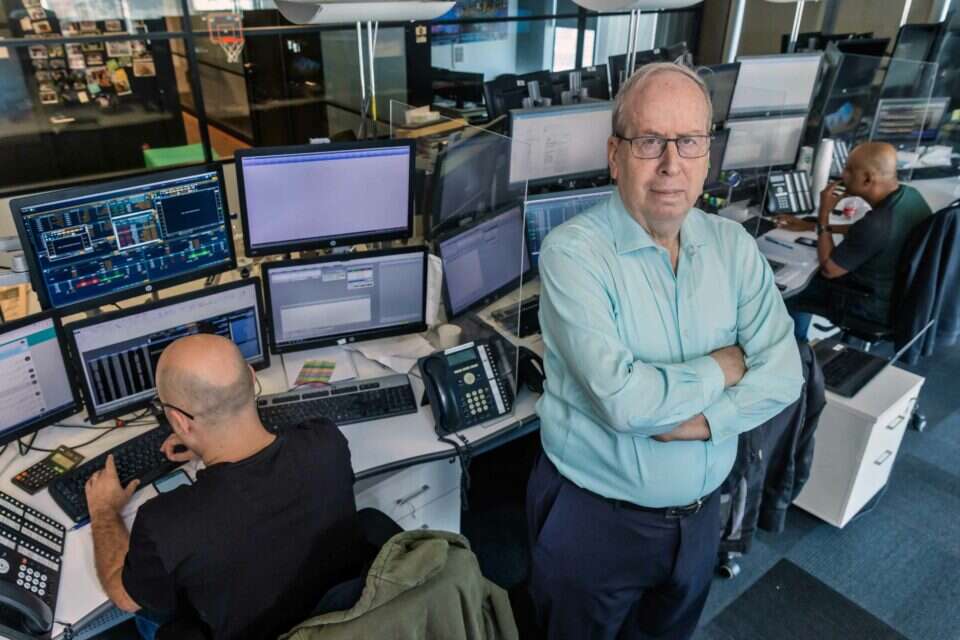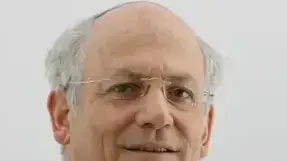Capitalism in its current form has gone bankrupt, "declares Zvi Stepak, who co-founded a small, Meitav investment house with Shlomo Simnovsky in the late 1970s. He manages about NIS 135 billion and employs about 1,000 people, with a market value of about NIS 1.1 billion.
Anyone who knows Stepak knows that money is not his first motive, if at all, so joining a new voice called Conscious Capitalism, which has been translated into Hebrew as "attentive capitalism," is not at all surprising.
"Dr. Yael Almog Zakai completed a doctorate in the United States and offered me to bring to Israel what we call 'attentive capitalism.' .
"At first we worked alone, then we took a CEO, the Goldenberg Foundation, and added other people like Alona Bar-On, the publisher of Globes and Eyal Melis, the CEO of Tnuva, who is an authentic person who is connected to these values.
We also began to bring together businessmen and women from Arab society, such as Julia Zohar from Al-Erez Tahini. "
And what are you doing as part of the activities of "Attentive Capitalism"?
"We set up a 'public benefit corporation' and we develop the idea and spread it. We hold courses and meetings, and bought the rights to publish the book from Harvard Publishing. The book was written by John Mackie, co-founder of the global organization and co-CEO of Hall Foods Market. ';
And Raj Sisodia, who co-founded the organization and serves as Professor of Global Business at Besson College.
We made an adjustment for him to the Israeli reader, and companies undertook to buy some books to distribute to their managements.
It is also offered in bookstores and we hope it will help spread the idea. "
So what is the main idea?
"Management in business firms naturally feels a commitment to shareholders. Prof. Milton Friedman, one of the lights and innocents of capitalism, even wrote an article stating that the purpose of the company is to maximize profits. But we believe that the interest of companies can not be summed up in the shareholders.In our view a company should see the broader interest of the 'stakeholders'.
"This concept includes shareholders, but also employees, suppliers, customers, the community and the state. The good of everyone should be included in decisions. A company should cultivate leadership, especially by personal example, it should have a clear mission and an attentive corporate culture. The key is corporate culture. ".
It is not easy for managements to agree with you, because it also includes waiving part of their salary.
"True, this also makes economic sense. Take, for example, a company of 200 employees with five executives who receive a salary of NIS 40 million. In front of them are another 195 employees whose average salary is NIS 13,000. If we reduce their salary by 20%, that is It will be expressed in NIS 8 million for the five executives a year, which will not significantly affect their net salary - their standard of living will not change.
"But if you distribute NIS 8 million to the other workers, each of them will receive an additional NIS 40,000 a year - NIS 3,500 a month. This net will be expressed in NIS 1,500 net per worker, and for them it is very significant. From a purely economic point of view, it is clear that the economy is better "The new situation I described. Their consumption will increase and I believe it increases the profitability of the business. It reduces the turnover rate of the employees, which saves money for the company, and the loyalty of the employees increases."
And that's what you did?
"Sure. We always lowered salaries for senior executives than juniors. We also took care of retaining employees, even when layoffs were needed we invested in professional redeployments. We tried to help them absorb with our competitors.
"During the merger, we spent a lot of hours discussing how to fire, without any considerations of corporate politics. We thought about how the company would be run according to ethical principles. The salaries of the five executives by 20%, and we have not increased it since.
"We also distributed options to every employee with a year or more of experience. At the same time, we invested in social activities, such as philanthropy of NIS 2 million for non-profit organizations in the fields of education.
Reach the middle road
Wage limitation is an extreme intervention. Do you think this idea should be imposed on firms?
"No. Whoever does not want to consider the environment and only cares about his profits - disrupting him. We promote information, we believe that if we do not learn to understand that extreme capitalism does not work, we may find ourselves in the other extreme. I am a capitalist, I am for freedom "I think we need to find the middle way. This is my way, also politically."
If you had been learning the principles of "attentive capitalism" since you established the best, would your conduct have changed?
"I always behaved like that. I did not get into the field in the usual way. I studied for a bachelor's degree in general and Jewish history, and taught matriculation students in external schools. My notebooks passed from father to son. Only after a few years did I do a master's degree in business administration.
"Does not connect to their culture."
Wall Street,
"Meitav's first decade was a decade of survival. In the 1980s, there was a terrible 440 percent inflation and we experienced the stock crisis in '83. My background in teaching brought me to the media as a commentator. To the history that aroused my interest in the subject.Politics I have always loved, not as an active participant.
"I always voted for the Independent Liberal Party, I connected with integrity and affiliation. That's what it was then in the 1960s. I was born in '46. I loved history and specialized in the Second Temple period and was loved in frameworks that paid me by success. The fact is that knowledge of history has greatly helped me in managing investments - in the broad view and ability to analyze situations.
"In the first years of Meitav I continued to teach, because I could not survive from the business. The second decade was of construction - the beginning of success. Provident funds began to enter the stock market in the 1980s. The third decade, 2009-1999, was a decade of incredible growth. "The Marker chose me as the Capital Market Man of the Year. But I always had the understanding that there is an intellectual side and there is a matter of values and emotion; and the wisdom is to combine them."
"We diluted ourselves"
I ask Stepak if it is possible that today they are breaking into an open door, in light of the statement of the CEOs of the largest and most influential companies in the world, who already in 2019 stated that profit is not the most important thing to them.
"I do not connect with the culture of Wall Street," Stepak explains.
"In general, there is nothing to learn from the Americans in the field of corporate culture. The CEO's statement is a statement of defense, I do not believe in its sincerity.
They were startled by people like Bernie Sanders blowing their necks.
I would not go to the extremes of Sanders, I oppose sharing employees on boards of directors and the idea of the 'residual profit' of Yedidya Stern, who argues that shareholders are not worth more than the rest of the stakeholders.
For me, leadership is the important thing.
"Treating employees at eye level, not as a slogan, but matter-of-factly, is the important thing. These are not statements but actions. We sacrificed for the idea - we reduced wages by millions of shekels for 8-7 years. We diluted ourselves to give more to employees. Companies can not make statements. "To act in the opposite direction, such as the concept of efficiency, which states that every year 10% of the less efficient workers should be fired. This creates a bad culture and an organizational politics of survival and fear."
"Impressive pension returns"
You're talking about the danger of capitalism. What endangers freedom today?
"In the 50s and 60s of the last century, a CEO received 20-15 times his employees.
Since the Thatcher era and the influences of Milton Friedman, the pay gap between managers and employees has skyrocketed by 300-250.
It is not morally appropriate for there to be such gaps.
There is talk of the declining inequality index in Israel.
But the thing is that today it is no longer just a matter of wage disparities, but of financial wealth.
A manager can get a lower salary and hold shares and other assets.
"Since the crisis of 2008, assets have risen 9-8 times and wages have obviously not risen at such rates, so the gaps have widened and not because of wages. This inequality will explode inside us. I do not advocate equality in terms of equality in outcome, but I believe equality gaps should be reduced Opportunities need to invest more in education in the periphery.
"I also oppose over-regulation, but it can not be ignored that it is essential in many areas. Total freedom leads to scams, like drug companies that have caused painkillers addiction, like the Volkswagen scam affair and damaged Airbus planes, and also the distribution of porn and tobacco."
But fraud is prohibited by law, it is a criminal offense, it is not a matter that needs further regulation.
"True, but it's a result of the great pressure exerted on management to present profits every quarter, to make a profit in the short term, even at the expense of the long term. Take for example the story of Teva that has crashed since Erez Vigodman was appointed CEO.
As CEO of Teva he acquired Actavis to become the largest generics company in the world. He convinced the board during.
"It happened because Copaxone started to lose his debut. Under the pressure of circumstances he took a step that is suicidal. The decision was made within two weeks without proper due diligence, and the entanglement continued with the acquisition of more companies. The irony is that in 2015, after his unfortunate decision, he was named Of Globes.He managed the stock instead of the company.These are unfortunate decisions of companies that want to swallow everything and fast.
"The road has also accelerated for Nochi Dankner, Shaul Alovich, Lev Leviev and Eliezer Fishman - all of whom have fallen on too much leverage. If the companies do not act responsibly towards all their stakeholders, it is only a matter of time before regulators deal with them. Themselves. "
You do not really think companies and businesses will limit themselves.
"Obviously this is a long-term internal process. We must act in the direction of education and inspiration. But I also propose regulation in cases of market failure. It is not possible that an important field like mortgage advice will be hacked for everyone. It is not possible for companies to sell agricultural land with no promises. Reality.
"I was very active in the Bachar reform, which took the management of funds and pensions out of the banks. In this case I have a personal interest of course, but I did not act out of it.
"Only large organizations received significant discounts. After the sector opened up to competition, commissions fell from 6% to 2% and half the percentage was cut. Management fees ate up more than a third of public pensions. Commissions in mutual funds were also cut in half."
And today, what do you think about the state of our pensions?
"Today, the pension market is competitive. This has created pressure to lower management fees. The increase in the market share of individuals will increase, and the world of yields will play a role. Altshuler Shaham is an example of a body that was impressively small and skyrocketed. "NIS 4 billion - study and pension provident fund. In terms of market returns in Israel, we have achieved impressive returns compared to the world. The level of investment managers in Israel does not fall short of that of the developed countries in the world."
Were we wrong?
Fixed!
If you found an error in the article, we'll be happy for you to share it with us










/cloudfront-eu-central-1.images.arcpublishing.com/prisa/KMEYMJKESBAZBE4MRBAM4TGHIQ.jpg)


